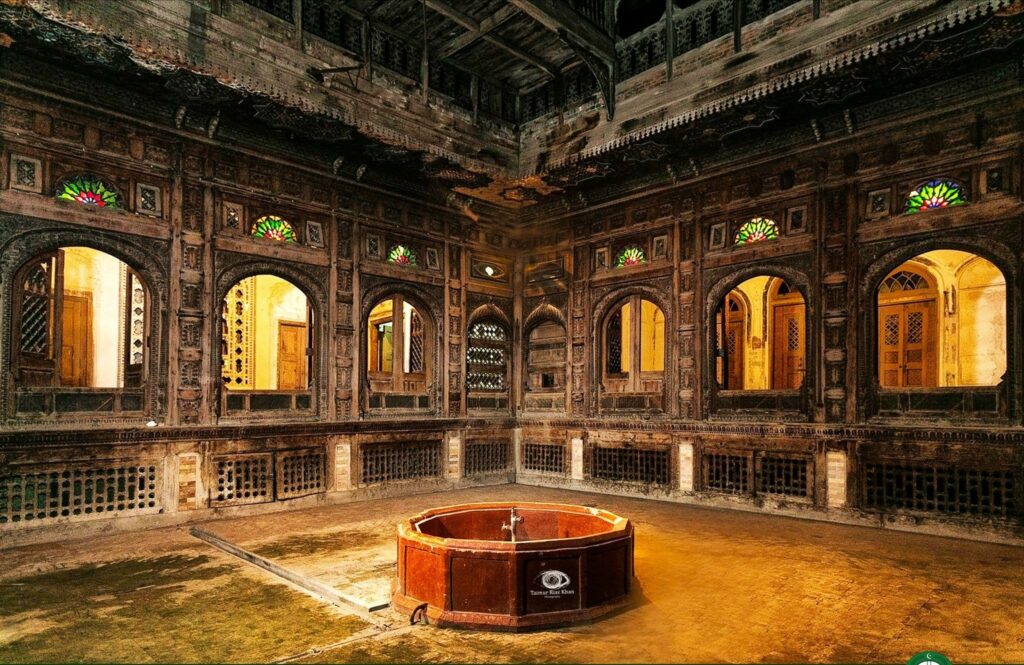Laiba Farooq, a sixth-grade student with a passion for architecture and archaeology, was thrilled after visiting the historic Sethi House on Monday. Renowned for its stunning woodwork and exquisite architectural design, the Sethi House left Laiba and her sister, Aleena Farooq, in awe as they explored the landmark in Peshawar’s Mohalla Sethiyan near Ghanta Ghar.
Built in 1886 by Sethi Karim Bakhash, the Sethi House features an impressive wooden gate, a grand courtyard, and a captivating water fountain. Construction began in 1835 during the colonial era, taking nearly 49 years to complete.
The house, a blend of Muslim and vernacular Uzbekistani architecture, boasts unique features such as a basement, central courtyard, and upper floor, showcasing the Sethi family’s architectural flair and love for woodwork. Renowned archaeologist Prof. Ahmad Hassan Dani highlighted the significance of the Sethi neighborhood’s houses in his book “Peshawar – Historic City of the Frontier,” noting the area’s rich cultural history.
The Sethi family, known for their international trade and architectural contributions, faced economic difficulties in the early 20th century due to the Bolshevik Revolution, leading them to sell their properties, including the Sethi House. Bakhtzada Khan, Assistant Director of the Archaeology and Museum Department, emphasized the beauty of the mehrabs adorned with glass shelves and the exquisite ceiling design.
Tourist Umar Khayam Khan praised the building’s historical significance and its potential to attract global visitors, highlighting its eye-catching glasswork and floral designs from Belgium. Shahryar Khan, Chief Architect at the Communication and Works Department, described the Sethi House as a model of 20th-century green architecture due to its effective ventilation and durability.
Acquired by the KP Government in 2006 and converted into a museum in 2010, the Sethi House now attracts architecture enthusiasts. The museum houses artifacts and antiquities, including paintings, sculptures, carpets, textiles, and more, reflecting the region’s rich history and culture. The Cultural Heritage Trail Project (CHTP) renovated the area, revitalizing 85 heritage buildings and reflecting Peshawar’s historical grandeur.
Sethi House Museum is open from 9 a.m. to 5 p.m., with an entrance fee of Rs. 100 for adults and Rs. 50 for children. Experts suggest that properly showcasing the museum on social media platforms could attract international tourists.
